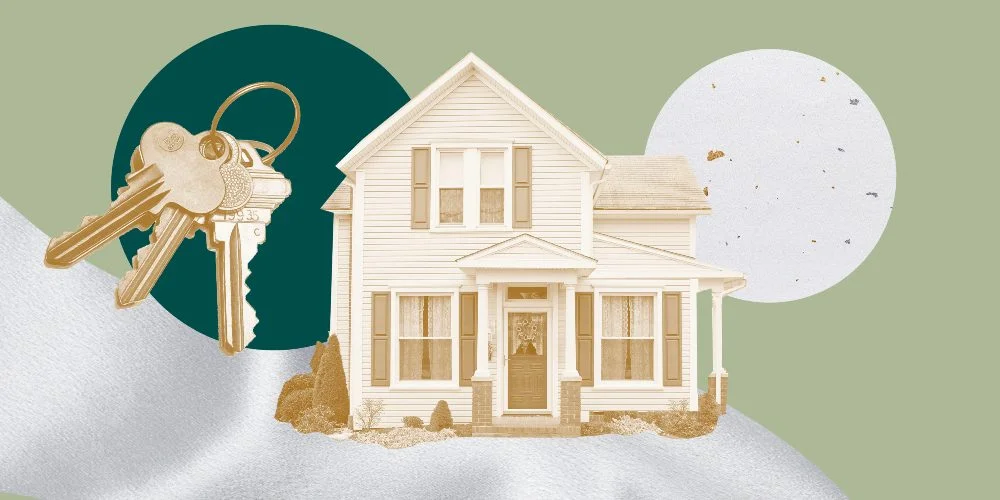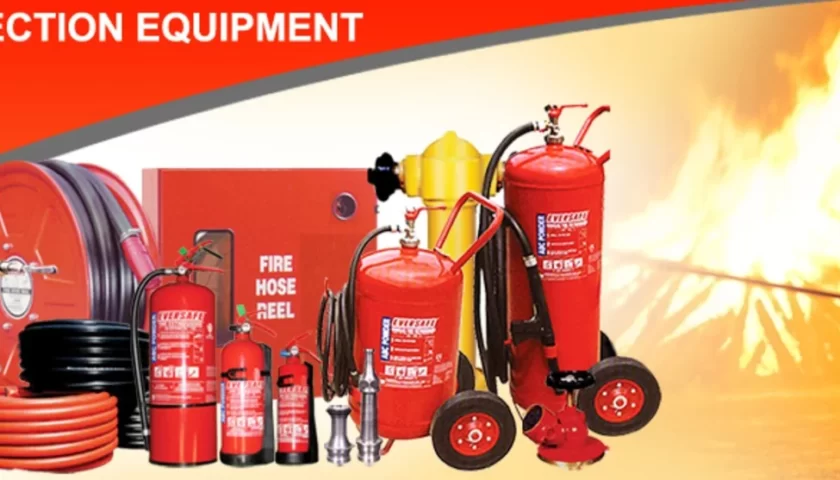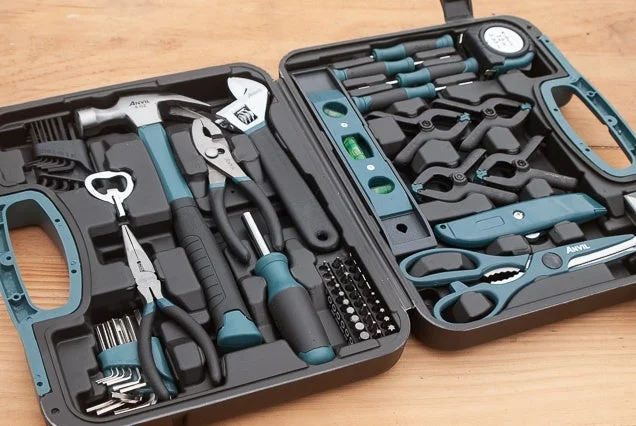Business
7 Things All Homeowners Need

Owning a home comes with a range of responsibilities and considerations. Whether you’re a first-time homeowner or have been living in your house for years, there are certain essentials that every homeowner should have. These essentials not only contribute to the safety and security of your home but also help in maintaining its value and creating a comfortable living environment for you and your family.
First and foremost, home insurance is a crucial necessity for homeowners. It provides financial protection in the event of unforeseen circumstances such as fire, theft, or natural disasters. A comprehensive home insurance policy safeguards your property and belongings, providing you with peace of mind. Alongside insurance, homeowners should also equip themselves with a basic toolkit consisting of essential maintenance tools. From a hammer and screwdriver set to pliers and a tape measure, these tools enable homeowners to handle minor repairs, and maintenance tasks, and even engage in do-it-yourself projects around the house.
Table of Contents
Have A Good Homeowners Insurance Policy

Home insurance is an essential component of responsible homeownership. It provides financial protection and peace of mind by covering the costs associated with damage or loss to your property and belongings. Home insurance typically includes coverage for the structure of your home, personal belongings, liability protection, and additional living expenses in case your home becomes temporarily uninhabitable.
One of the primary components of home insurance is coverage for the structure of your home. This includes the physical building and its permanent fixtures, such as the roof, walls, floors, and built-in appliances. In the event of damage caused by perils like fire, windstorms, or vandalism, your home insurance policy will help cover the cost of repairs or rebuilding. It’s important to review the coverage limits of your policy to ensure they adequately reflect the estimated cost of rebuilding your home in case of a total loss.
Home insurance also provides coverage for personal belongings, including furniture, electronics, clothing, and other items inside your home. If your belongings are damaged, destroyed, or stolen due to covered perils, your insurance policy will reimburse you for their value or provide funds for their replacement. However, it’s essential to take inventory and document your possessions to facilitate the claims process and ensure accurate reimbursement.
Liability protection is another crucial aspect of home insurance. If someone is injured on your property and holds you responsible, your insurance policy can help cover the associated medical expenses, legal fees, and potential settlement costs. This liability coverage extends beyond your property and may include incidents that occur away from home as well.
Lastly, home insurance may cover additional living expenses if your home becomes uninhabitable due to a covered event. This coverage helps with the cost of temporary accommodation, meals, and other necessary expenses while your home is being repaired or rebuilt. It provides a safety net, allowing you to maintain your standard of living during challenging times.
Fire Safety Equipment

Fire safety equipment is of utmost importance for every homeowner. Being prepared for a potential fire can mean the difference between a small incident and a catastrophic event. One of the most critical fire safety devices is smoke detectors. These devices are designed to detect smoke and issue a loud alarm, alerting occupants to a potential fire. It is essential to have smoke detectors installed on each level of the home, including near bedrooms, and to regularly test and maintain them to ensure their proper functioning.
Another vital fire safety equipment is fire extinguishers. These portable devices are designed to suppress small fires and prevent them from spreading. Every homeowner should have at least one fire extinguisher readily accessible in the home, ideally placed in the kitchen or near areas prone to fire hazards. It is crucial to select the appropriate type of fire extinguisher based on the potential fire risks in your home. Common types include ABC extinguishers, which can handle various types of fires, and specific extinguishers for flammable liquids or electrical fires. It is equally important to familiarize yourself with the proper usage and maintenance of fire extinguishers, as well as periodically inspecting them to ensure they are in good working condition.
Essential Appliances
Essential appliances are a key component of every homeowner’s daily life, providing convenience and functionality in various aspects of household tasks. One of the most vital appliances in any home is a refrigerator. It keeps food fresh, preserves perishable items, and prevents spoilage. A refrigerator with a freezer compartment allows for the storage of frozen foods, extending their shelf life and providing the convenience of having ice readily available. A well-functioning refrigerator is crucial for maintaining a healthy and well-stocked kitchen.
Another essential appliance for homeowners is a stove or cooktop. Whether it’s a gas or electric model, a stove provides the means to cook meals and prepare food. It allows for various cooking techniques, from boiling and simmering to baking and frying. With a stove, homeowners can create delicious meals for themselves and their families, making it a central hub of the kitchen.
A dishwasher is an essential appliance that simplifies the task of cleaning dishes and utensils. It saves time and effort by efficiently washing and drying dishes, eliminating the need for manual scrubbing and drying. A dishwasher also promotes good hygiene by ensuring thorough cleaning and sanitization of dishes, removing food residue and bacteria. Having a dishwasher in the kitchen reduces the workload and provides convenience, allowing homeowners to spend more time on other activities.
Basic Toolkit

A basic toolkit is an indispensable asset for homeowners, enabling them to handle a wide range of repairs, maintenance tasks, and DIY projects around the house. It consists of essential tools that are versatile and commonly used in various household applications. One of the fundamental tools in a basic toolkit is a hammer. With its ability to drive nails into walls, assemble furniture, or remove nails when needed, a hammer is a versatile tool that every homeowner should have.
Screwdrivers are another crucial component of a basic toolkit. They come in various types and sizes to accommodate different screw heads. A set of screwdrivers allows homeowners to tighten loose screws, assemble or disassemble items, and open battery compartments, among other tasks. Screwdrivers are an essential tool for common household repairs and are indispensable when it comes to tackling projects involving furniture, appliances, or electronics. By having a basic toolkit with tools like a hammer and screwdrivers, homeowners can handle minor repairs and projects without the need to rely on professional assistance, saving both time and money.
Safety And Security Measures
Safety and security measures are of paramount importance for homeowners to ensure the well-being of their families and protect their property. One essential aspect of safety and security is securing entry points. Installing sturdy locks on doors and windows is crucial to prevent unauthorized access and potential break-ins. Deadbolt locks, keyless entry systems, or smart locks can provide an extra layer of security, giving homeowners peace of mind knowing their home is protected.
Investing in a home security system is another crucial safety measure. A comprehensive security system can include features such as door/window sensors, motion detectors, surveillance cameras, and an alarm system. These components work together to detect and deter intruders, as well as provide homeowners with real-time alerts and video footage in case of suspicious activities. Additionally, visible security signage can act as a deterrent, signaling to potential intruders that the property is protected.
Outdoor lighting is an often overlooked but essential safety measure. Adequate outdoor lighting not only enhances the aesthetics of a home but also plays a vital role in deterring criminals and preventing accidents. Well-lit exteriors make it difficult for intruders to approach unnoticed and can discourage them from targeting a well-lit property. Outdoor lighting also improves visibility at night, reducing the risk of trips and falls and enhancing overall safety for homeowners and visitors.
By implementing safety and security measures such as securing entry points, investing in a home security system, and ensuring proper outdoor lighting, homeowners can significantly enhance the safety and security of their property. These measures provide peace of mind, create a secure living environment, and act as deterrents against potential threats, allowing homeowners to focus on enjoying their homes without unnecessary worries.
Maintenance Schedule
Having a home maintenance schedule is crucial for homeowners to ensure the proper upkeep and longevity of their property. By following a schedule, homeowners can stay organized, proactively address maintenance tasks, and prevent potential issues from escalating into major problems. A well-planned maintenance schedule helps homeowners keep track of routine tasks, inspections, and necessary repairs, ensuring that their home remains in good condition.
A home maintenance schedule should include tasks such as cleaning gutters and downspouts, inspecting the roof for any signs of damage or leaks, and servicing HVAC systems. Regular gutter cleaning prevents clogs and water damage, while roof inspections help identify any issues that may compromise the integrity of the roof. Servicing the HVAC system ensures optimal performance and energy efficiency. Additionally, other tasks like checking for leaks in plumbing, testing smoke detectors, and inspecting electrical outlets can be included in the schedule to ensure the safety and functionality of the home.
It is recommended to set specific intervals for different maintenance tasks, such as monthly, quarterly, biannually, or annually, depending on the nature of the task. Some tasks may be seasonal, like inspecting and cleaning the chimney or winterizing the plumbing system before the cold weather sets in. By breaking down the maintenance tasks into manageable intervals, homeowners can prioritize and tackle them systematically, avoiding overwhelming maintenance projects and potentially costly repairs.
Consistency is key when it comes to home maintenance. By adhering to a well-planned maintenance schedule, homeowners can catch issues early, extend the lifespan of their home’s components, and maintain a comfortable and safe living environment. It is also beneficial to keep records of completed maintenance tasks, including dates and details, as they can serve as a reference for future inspections and provide documentation for potential insurance claims or property assessments.
Energy Efficiency Measures
Energy efficiency measures are essential for homeowners to reduce energy consumption, lower utility bills, and contribute to a more sustainable environment. One key energy efficiency measure is upgrading to energy-efficient appliances. Appliances such as refrigerators, washing machines, dishwashers, and HVAC systems with high energy-efficiency ratings can significantly reduce energy consumption. Energy-efficient appliances use less energy to perform the same tasks, resulting in lower electricity or gas bills. Homeowners can look for appliances with the ENERGY STAR label, which indicates that the appliance meets or exceeds energy efficiency standards set by the Environmental Protection Agency (EPA).
Improving insulation is another effective energy efficiency measure. Proper insulation helps to keep the home well-insulated, reducing heat loss in the winter and heat gain in the summer. Insulation can be added to attics, walls, and floors, and weatherstripping can be applied to windows and doors to prevent drafts. By minimizing air leaks and ensuring adequate insulation, homeowners can maintain a more consistent indoor temperature, reduce the workload on heating and cooling systems, and achieve energy savings.
Exploring renewable energy options is another way homeowners can improve energy efficiency. Installing solar panels on the roof allows homeowners to generate their own clean and renewable energy, reducing reliance on traditional energy sources. Solar power can be used to generate electricity or heat water, providing sustainable energy solutions and potentially reducing utility bills. Additionally, homeowners can consider other renewable energy options such as wind turbines or geothermal heating and cooling systems, depending on the location and specific needs of the property. By harnessing renewable energy sources, homeowners can reduce their carbon footprint and contribute to a greener future.
Conclusion
In conclusion, homeowners have a wide range of responsibilities when it comes to maintaining their homes, ensuring safety, and promoting energy efficiency. By recognizing the importance of home insurance, maintenance tools, fire safety equipment, essential appliances, safety and security measures, home maintenance schedules, and energy efficiency measures, homeowners can create a comfortable, secure, and sustainable living environment.
These elements work together to protect the home, its occupants, and valuable possessions. Home insurance provides financial protection in case of unexpected events, while maintenance tools enable homeowners to tackle repairs and projects. Fire safety equipment and security measures safeguard against potential hazards and intrusions. Essential appliances enhance convenience and functionality, while home maintenance schedules ensure regular upkeep and timely repairs. Finally, energy efficiency measures promote sustainability and help homeowners save on energy costs.
By incorporating these essential elements into their homeownership journey, individuals can create a harmonious and well-maintained living space that meets their needs and contributes to a better quality of life. Taking proactive steps to protect, maintain, and enhance the home allows homeowners to enjoy the benefits of homeownership while mitigating risks and promoting a comfortable and sustainable living environment for themselves and their families.
To know more about keep reading Lemony Blog.

-

 Business3 years ago
Business3 years agoHow to Do Long-Distance Moves with Children
-

 Travel2 years ago
Travel2 years agoQuick Guide: Moving To Santa Rosa?
-

 Business1 year ago
Business1 year agoThe Ultimate Guide To Thriving In Your Printing Franchise
-

 Business1 year ago
Business1 year agoExploring The Benefits And Challenges Of Restaurant Franchising
-

 Business4 years ago
Business4 years agoIs Guest Posting a Good Inbound Marketing Strategy?
-

 Real Estate3 years ago
Real Estate3 years agoWhy Dubai Festival City is a Great Neighbourhood for Young Learners
-

 Tech3 years ago
Tech3 years agoCyber Table That Will Change Your Life
-

 Lifestyle1 year ago
Lifestyle1 year agoDallas’ Hidden Gems: 6 Must-Try Restaurants Off The Beaten Path!









Recent Comments